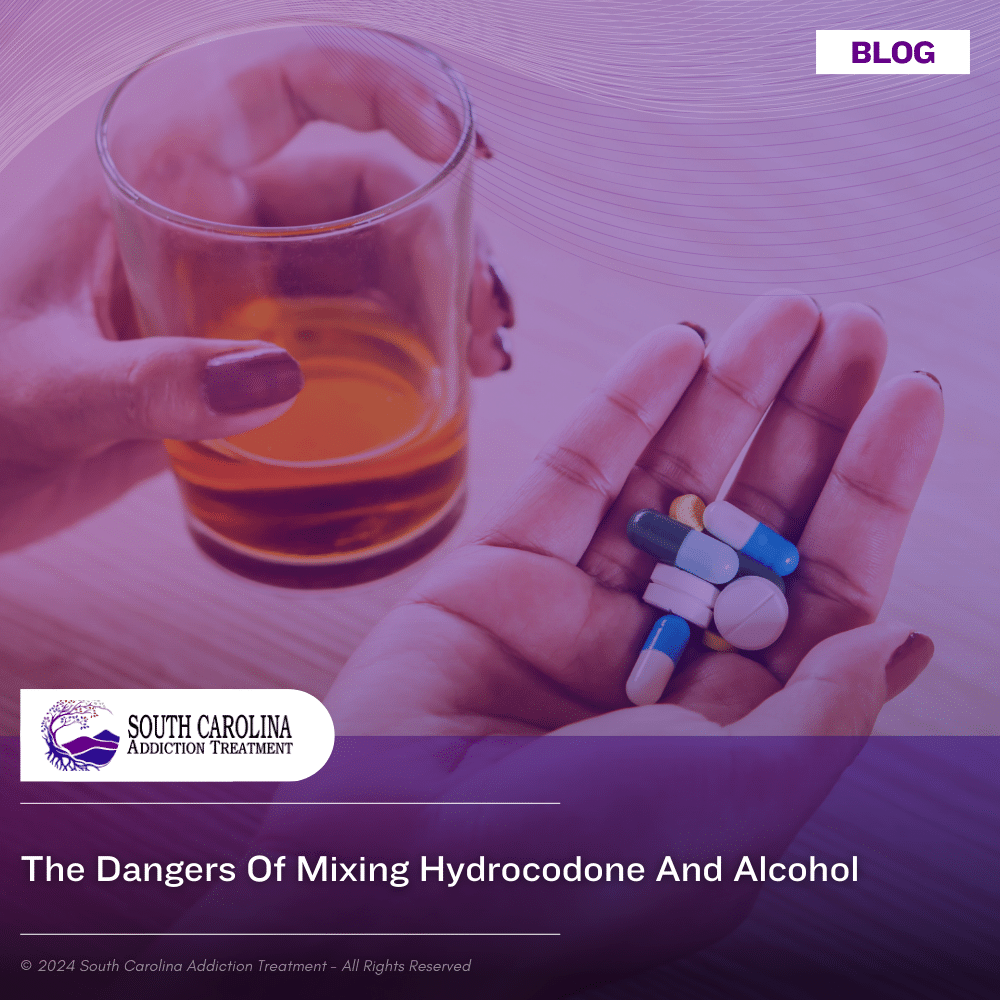The Dangers of Mixing Hydrocodone and Alcohol

Medically Verified: 2/1/24
Medical Reviewer
Chief Editor

All of the information on this page has been reviewed and verified by a certified addiction professional.
Alcohol is one of America’s favorite pastimes. You can find someone drinking in almost every situation, from a fun day at an amusement park to family dinners and birthday parties. According to the National Institute of Alcohol Abuse and Alcoholism (NIAAA), over 220 million people report drinking at some point in their lives.[1]
While occasional alcohol use is fine, it’s important to consider other medications you might be taking that could interact with it negatively. Even the most common medications can cause negative side effects when combined with alcohol.
One medication that you should never combine with alcohol is hydrocodone. Hydrocodone is an opioid pain reliever that causes central nervous system (CNS) depression. Because alcohol is also a CNS depressant, mixing them could cause life-threatening effects.
If you are mixing hydrocodone and alcohol, being aware of the risks is vital to your health. The dangers of combining these medications include respiratory depression, lowered blood pressure, neurological issues, gastrointestinal upset, and more.
What is Hydrocodone?
Hydrocodone is an opioid pain reliever that is only available by prescription. Because it can be habit-forming and addictive, hydrocodone is usually only prescribed for short-term use. More often than not, hydrocodone is combined with acetaminophen under brand names like Vicodin or Norco.
The side effects of hydrocodone include:[2]
- Dry mouth
- Tiredness or sedation
- Stomach pain
- Headaches
- Back pain
- Muscle tightening
- Difficulty urinating
- Ringing in the ears (tinnitus)
- Trouble falling asleep or staying asleep
- Swelling in the foot, leg, or ankles
- Excessive shaking or tremors
- Itchiness
- Nausea and vomiting
While hydrocodone mainly causes pain relief, people abuse it because it can cause a euphoric and sedative high. Unfortunately, some individuals might combine hydrocodone with alcohol to increase the effects they experience, which can be life-threatening and lead to overdoses.
What are the Dangers of Mixing Hydrocodone and Alcohol?
The main danger associated with mixing hydrocodone and alcohol is overdose. When you overdose on a combination of these drugs, it is usually caused by respiratory depression. This means that your respiratory system is slowed to life-threatening rates.
According to the NIAAA, 17.4% of opioid overdoses in 2020 involved alcohol.[3]
If you believe someone is overdosing on a combination of alcohol and hydrocodone, contact emergency medical services immediately.
Other risks associated with combining hydrocodone and alcohol include:
- Cardiovascular- both hydrocodone and alcohol can lower your blood pressure and slow your heart rate to dangerous levels
- Neurological- alcohol and hydrocodone can cause you to experience fatigue, drowsiness, sedation, and anxiety
- Dermatologic- alcohol can increase side effects of hydrocodone like itchiness, skin rashes, and excessive sweating
- Gastrointestinal- mixing alcohol and hydrocodone can cause gastrointestinal issues like nausea, vomiting, stomach pain, and gastroenteritis
Why Do People Combine Hydrocodone and Alcohol?
Both alcohol and hydrocodone can cause feelings of euphoria and drowsiness when abused. Some people describe feeling like they are floating, experiencing fewer emotions, and not having a care in the world when they are under the influence of these substances.
People might combine hydrocodone and alcohol for the following reasons:
- To intensify the sedative effects of alcohol and hydrocodone
- To deepen the relief experienced when taking hydrocodone
- To experience higher amounts of euphoria from both substances
- To get better sleep at night
- To blunt the emotional pain they are experiencing
Because alcohol can increase the effects of hydrocodone, some people may begin to combine them. Unfortunately, this can lead to a variety of uncomfortable symptoms and life-threatening health emergencies.
Can You Get Addicted to Mixing Hydrocodone and Alcohol?
Combining two different mind-altering drugs is known as polysubstance abuse. Unfortunately, mixing drugs like alcohol and hydrocodone increases your risk of experiencing a life-threatening overdose. According to the Centers for Disease Control and Prevention (CDC), nearly 50% of fatal overdoses involve more than one substance.[4]
If you are mixing alcohol and hydrocodone, you can become addicted to both of them. When you are addicted to two substances, it complicates recovery and makes it more difficult to obtain long-term sobriety. Thankfully, professional drug rehab programs can provide you with the tools and support you need to recover from addiction to both alcohol and hydrocodone.
How Long After Taking Hydrocodone Can You Drink Alcohol?
The half-life of hydrocodone is about 4 hours, which means it can take up to 20 hours for it to leave your system completely.[5] Because of this, you should always wait at least one day after taking hydrocodone to drink alcohol.
If you accidentally combine alcohol and hydrocodone, you should contact your doctor. They can help determine if you require additional treatment to ensure the interactions do not become severe.
Finding Help for Hydrocodone and Alcohol Abuse
If you or a loved one suffers from hydrocodone and alcohol abuse, it’s time to seek help. Whether you are combining the substances or using them separately, a drug rehab program can provide you with the support you need to regain control over your life.
To learn more about our hydrocodone and alcohol rehab program, contact the South Carolina Addiction Treatment Center today.
References:
- The National Institute of Alcohol Abuse and Alcoholism (NIAAA): Alcohol Use in the United States: Age Groups and Demographic Characteristics, Retrieved December 2023 From https://www.niaaa.nih.gov/alcohols-effects-health/alcohol-topics/alcohol-facts-and-statistics/alcohol-use-united-states-age-groups-and-demographic-characteristics
- Medline Plus: Hydrocodone, Retrieved December 2023 From https://medlineplus.gov/druginfo/meds/a614045.html
- The National Institute of Alcohol Abuse and Alcoholism (NIAAA): Alcohol-Related Emergencies and Deaths in the United States, Retrieved December 2023 From https://www.niaaa.nih.gov/alcohols-effects-health/alcohol-topics/alcohol-facts-and-statistics/alcohol-related-emergencies-and-deaths-united-states
- The Centers for Disease Control and Prevention (CDC): Polysubstance Use Facts, Retrieved December 2023 From https://www.cdc.gov/stopoverdose/polysubstance-use/index.html
- The Food and Drug Administration (FDA): Norco Label, Retrieved December 2023 From https://www.accessdata.fda.gov/drugsatfda_docs/label/2014/040099Orig1s018lbl.pdf

